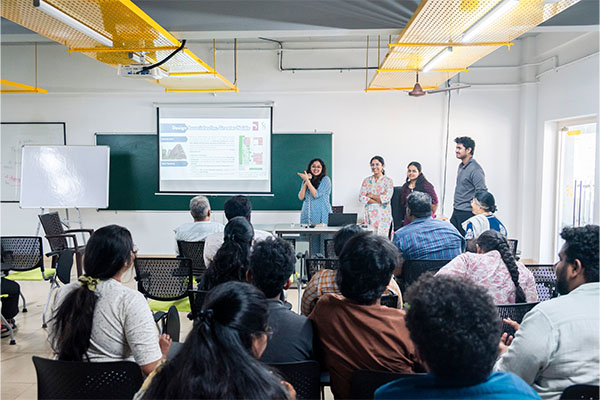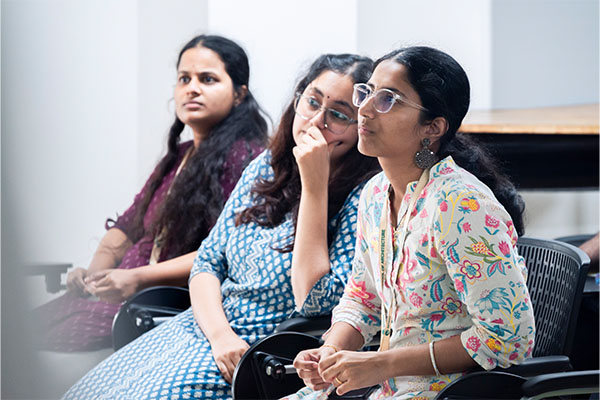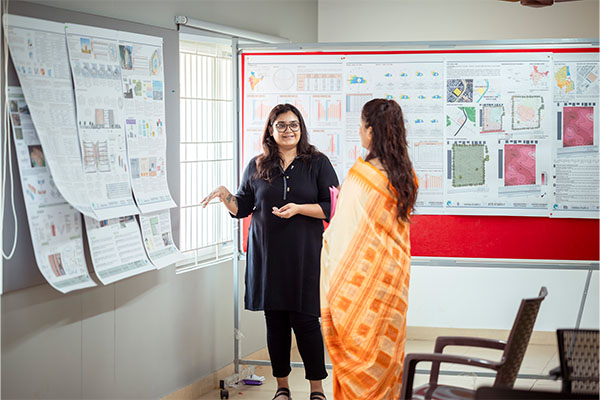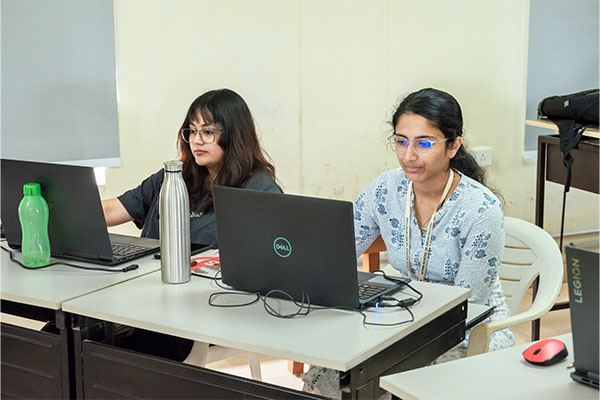About the M.Arch - Sustainable Architecture Program
The M.Arch (Sustainable Architecture) program at GITAM is a forward-thinking, research-oriented postgraduate degree designed to address the urgent need for sustainable and inclusive architectural practices. Recognised by the Council of Architecture (COA), the program blends academic rigour with real-world relevance, preparing graduates to become leaders in environmental design and resilience.
Developed in collaboration with leading academicians and industry experts, the revised curriculum integrates advanced design studios, technical coursework, and performance-based simulations. Emphasis is placed on both passive and active sustainability strategies across building and campus scales.
A defining feature of the program is the Summer Collaborative Project, where students work with community partners and local stakeholders to deliver impactful, context-sensitive design solutions.
The program offers in-depth training in:
- Eco-friendly building systems
- Energy modelling and simulation
- Passive design strategies
- Sustainable materials and technologies
- Net-zero and climate-responsive design principles
Graduates are equipped with the expertise to contribute meaningfully in sustainable practice, policymaking, and academic research.




